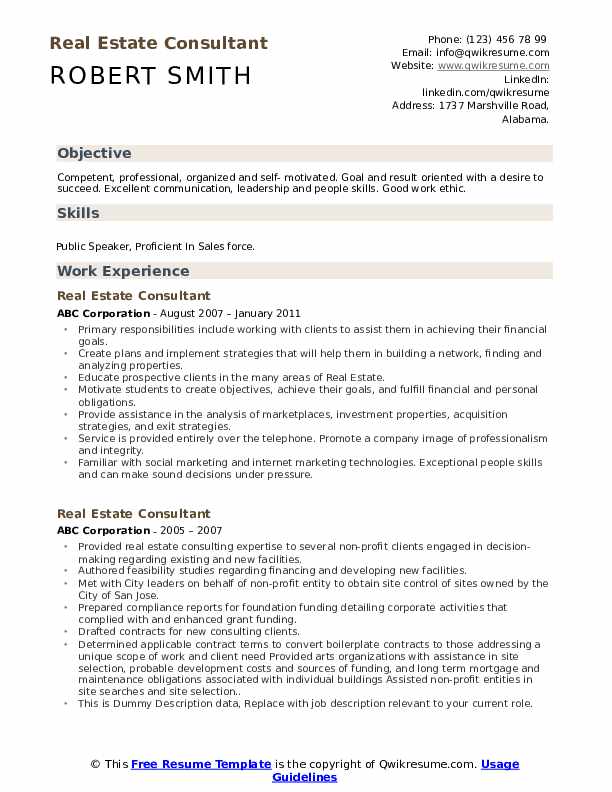
A supply chain consultant is an expert on supply chain management. The supply chain consultant is an expert in managing supply chains and has extensive knowledge of manufacturing. A skilled consultant in manufacturing must have a solid understanding of the business and be able to explain it clearly. This will help them offer you a more practical approach to the project's requirements.
Career path
You may be interested in a career in supply chain consulting if you are passionate about the supply chain. This role involves identifying and helping to implement change in specific areas. This role also requires extensive analytical work because supply chain consultants need to be familiar with various systems as well as advanced analytical tools.
Supply chain consulting is a rewarding career that can offer great rewards. Consultants help clients fulfill their customer service promises and maximize profits. But it is important to know that it is not the first career choice for every young professional. This job entails a lot of analysis and can have a direct impact on a company's operations.

A supply chain consultant can be self-employed or work for consulting firms or business-to-business service providers. Consulting services are offered by some accounting firms. Online job postings for supply-chain consultants are readily available. In time, supply chain consultants can progress to positions with greater responsibility and pay. However, senior consultant positions are rare.
Education requirements
There are many education requirements to become a supply chain consultant. However, it is recommended that candidates have at least a bachelor's level. Although business is the most popular major, some colleges also offer specializations in supply chain management. Candidates may also choose to specialize in one industry such as transportation, manufacturing, or government projects.
A team of supply chain professionals often includes procurement and production managers. They need to be able and willing to work in a team to achieve shared goals. Leadership skills are a benefit as they will be leading a team. Developing these skills will be helpful in project management and team management.
Supply chain consultants assist clients in streamlining their logistics network. They collaborate with management teams to find solutions and improve efficiency. They consult with clients in order to evaluate their current processes, and then propose alternate methods. This is why they need to be highly analytical and interpersonally skilled.

Salary
A supply chain consultant assists companies in streamlining logistics by coordinating the processes between multiple distribution centers domestically and internationally. This role has a base salary of $60,000. However, the range can vary from $31,000 to $89,000. They supervise the purchasing department of a company. They analyze historical data and identify potential suppliers and vendors. They manage suppliers and negotiate contracts once they are in place.
There are many factors that determine the salary of a supply-chain consultant. The average salary of a supply chain consultant will vary based on education and experience, as well as the location of their job. Salary figures on salary comparison websites are not guaranteed to be accurate. Always verify the accuracy of salary figures with prospective employers.
There are several different job titles that fall into the category of supply chain consultants. Purchasing managers can either be attached to a supply chain, or they may be separate. These professionals set the company's purchasing policy. They help companies maximize their profits by helping them achieve their goals. Another role in the supply chain is that of the Purchasing Assistant. They manage the administrative aspects and follow up with customers and suppliers. The Purchasing Assistant works with the Supply Chain Manager, Operations Buyer and manages the procurement process. They are also able to work with Transportation & Logistics Buyer. This buyer specializes on the negotiation of transportation and storage equipment.
FAQ
What jobs are available as consultants?
Consulting requires an in-depth understanding of operations and business strategy. You must also understand how businesses operate and how they fit into society.
Consultant work requires excellent communication skills and the ability to think critically.
Consultants should be flexible because they may be asked for different tasks at various times. They should be able change direction quickly, if required.
They should be able to travel extensively for clients. This type of work can take them all over the world.
They must also be able handle stress and pressure well. Consultants may sometimes be required to meet tight deadlines.
Consultants might be required to work long hours. This could mean that overtime may not always be paid.
What are some of the advantages to being a Consultant?
Consultants have the ability to choose when and on what they work.
This means that you are able to work from wherever you're at any time.
It also means you can easily change your mind without worrying about losing money.
Finally, your income can be controlled and you can set your own hours.
Are consulting incomes subject to tax?
Yes, you will need to pay tax on your consultancy profits. It depends on how much income you make per year.
If you are self-employed, expenses can be claimed on top of your salary. These expenses include rent, childcare and food.
But, interest payments on loans, vehicle and equipment depreciation will not be allowed to be deducted.
You cannot claim back less than PS10,000 in a given year.
You might be taxed even if you make more than the threshold depending on whether your income is contractor or employee.
Employees are generally taxed through PAYE (pay as you earn) and contractors through VAT.
Can anyone be an advisor?
A consultant is someone who assists you in achieving your goals by offering advice and suggestions on how to achieve it faster, cheaper, and so forth.
A consultant can help you solve problems, make decision, or negotiate with people.
Consultants can be hired to assist with specific tasks or projects.
In reality, consultants are generally paid hourly or daily rates and not per project.
How do you choose a consultant to help me?
There are three key factors to be aware of:
-
Experience - How skilled is the consultant? Are you a beginner or an expert? Do her qualifications and knowledge show on her resume?
-
Education – What did this person learn at school? Did he/she pursue any relevant courses once he/she graduated? Were there any evidences of this learning in his/her writing?
-
Personality: Do you like this person or not? Would we hire him/her to be our employee?
-
These questions can help you determine whether the consultant is right for your needs. If you don't have clear answers, it may be worth meeting with the candidate for an interview.
What can I expect from my consultant?
Once you select your consultant, you should expect to hear back from them within a few days. They will typically ask for information about the company, such as its mission, goals. products and services. budget. Then, they'll send over a proposal outlining the scope of work, estimated time frame, fees, deliverables, milestones, etc.
If everything goes as planned, then both parties will agree to a written contractual agreement. The type of relationship between them (e.g. employer-employee or employer-independent contractor) will determine the terms of the contract.
If everything goes as planned, the consultant may begin to work immediately. The consultant will have access your internal documents and resources. Additionally, you'll have access their skills and knowledge.
But don't assume that anyone who is a consultant has all the answers. To become an expert in any field you consult, it takes practice and effort. You shouldn't expect your consultant will know everything you need to know about your business.
Can I get a degree as a consultant?
The best way to become an expert on any subject is by studying the subject thoroughly and then practicing what you have learned.
You can learn all you need to know to become a great consulting professional by starting to study now.
It may be difficult to get hired if your degree is not accompanied by relevant work experience. If you can show that your education is comparable to the job applicants, you may still be eligible for employment.
Employers will always seek out candidates who have real-world experience.
Statistics
- According to IBISWorld, revenues in the consulting industry will exceed $261 billion in 2020. (nerdwallet.com)
- Over 62% of consultants were dissatisfied with their former jobs before starting their consulting business. (consultingsuccess.com)
- Over 50% of consultants get their first consulting client through a referral from their network. (consultingsuccess.com)
- So, if you help your clients increase their sales by 33%, then use a word like “revolution” instead of “increase.” (consultingsuccess.com)
- On average, your program increases the sales team's performance by 33%. (consultingsuccess.com)
External Links
How To
How To Start A Consultancy Company, And What Should I Do First?
Starting a Consulting Company is a great way to make money online from home. No prior business experience is required. You can start your own consulting firm by building a website. Once you've built a website, you'll want to use social media platforms such as Facebook, Twitter, LinkedIn, Instagram, Pinterest, YouTube, etc... to get the word out about your services.
You can create a marketing strategy that includes these things with these tools
-
Content creation (blogs).
-
Establishing connections (contacts)
-
Generating leads, also known as lead generation forms
-
Selling products through ecommerce websites
Once you've developed your marketing strategy, you'll need to find clients who will pay for your services. While some people prefer to attend networking events and groups, others prefer online methods like Craigslist, Wikijiji, or Kijiji. The decision is up to each individual.
Once you've found new clients, you'll want to discuss terms and payment options. This could include hourly or flat fees as well as retainer agreements and flat fee contracts. It is important to clearly communicate with clients before you accept them as clients.
The most common type of contract for a consultancy service is an hourly agreement. This agreement allows you to agree to provide services at a fixed price each week or month. You may be able negotiate discounts depending on what service you offer. Make sure you understand what you are signing when you accept a contract.
Next, you will need to create invoices that you can send to your clients. Invoicing is one those things that seem so simple until you actually do it. There are many different ways to invoice your clients, depending on your preferences. Some people prefer to email their invoices directly, while others prefer to mail them hard copies. No matter what you do, make sure it works!
Once you have completed creating invoices you will want to collect payment. Most people prefer PayPal because it is easy to use and offers various payment options. There are many other payment options, such as Square Cash, Square Cash and Google Wallet.
Once you're ready and able to collect payments, you should set up bank accounts. Having separate checking and savings accounts allows you to track income and expenses separately. Setting up automatic transfers into your bank account is also helpful when paying bills.
Although it can seem daunting when you first start a business as a consultant, once you get the hang of it, it will become second nature. Check out this blog post for more information about starting a consultancy company.
You can make extra money by starting a consulting company without worrying about staff. Consultants can work remotely so they don't have the hassle of dealing with office politics and long working hours. Since you are not tied down by regular working hours, you have more flexibility than a traditional employee.